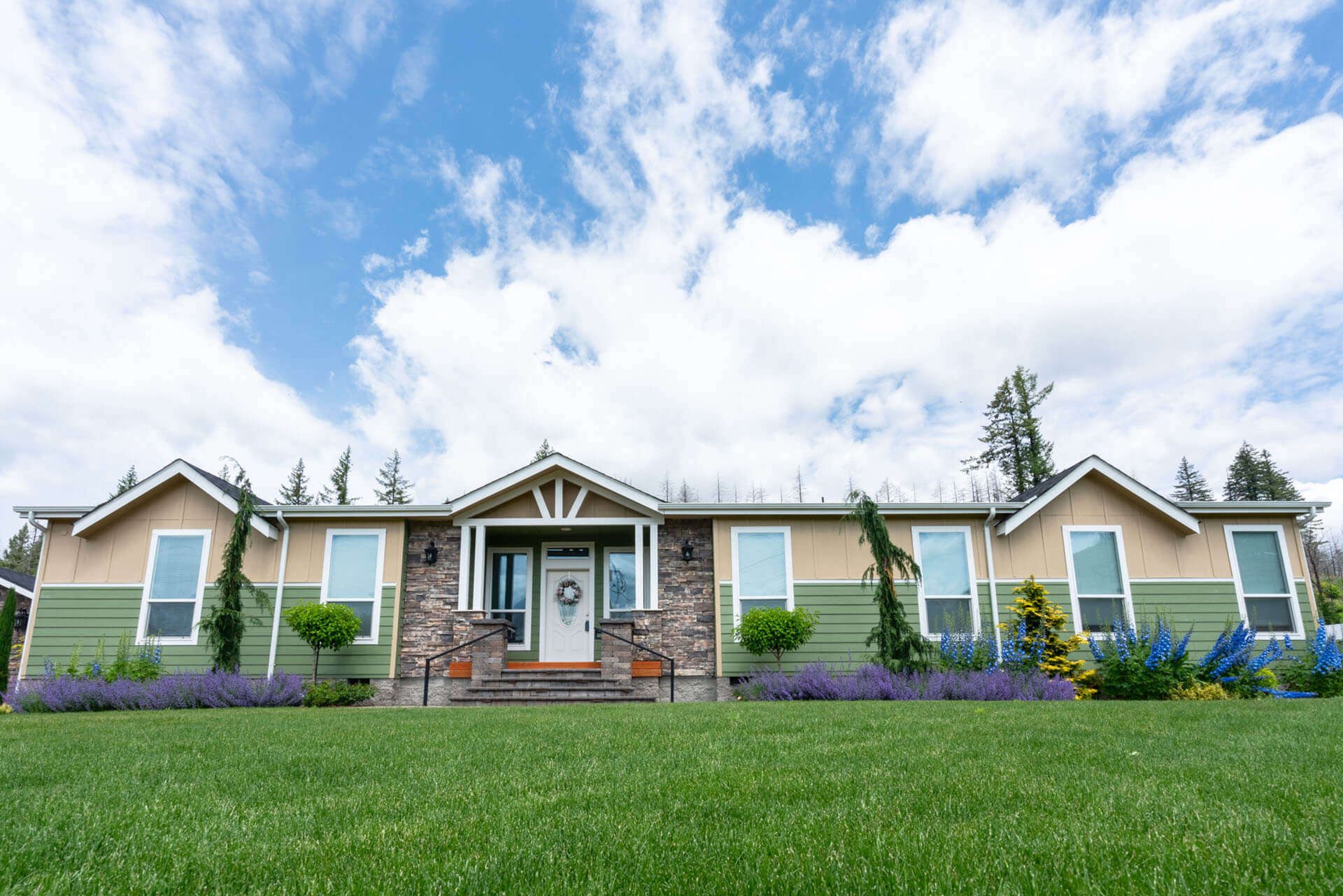
Manufactured homes are a type of stand-alone, single-family housing that offers an affordable and high-quality option for homeownership. These homes are constructed in climate-controlled, federally-regulated factory environments and then transported to their final destination for installation on either a temporary or permanent foundation.
Manufactured homes are known for their affordability and quality. They are built in controlled factory environments, ensuring consistent construction standards and reducing costs compared to traditional site-built homes. These homes offer an accessible entry point into homeownership for individuals and families seeking an affordable housing option.
One notable feature of manufactured homes is their versatility in terms of location. They can be placed in various landscapes, including suburban neighborhoods, manufactured home communities, or rural plots of land. This flexibility allows homeowners to choose a location that suits their lifestyle and preferences.
Manufactured homes also provide a range of floorplans, offering diverse options to accommodate different needs and preferences. In recent years, there has been an expansion of luxury upgrades, allowing homeowners to customize their manufactured homes to a higher level of comfort and style.
When purchasing a manufactured home, the buyer gains ownership of the entire home, along with the freedom to choose how they want to utilize the property. Whether the home is incorporated into the land, unattached to a specific property, or situated within a mobile home park, there are different ownership options available to cater to individual preferences.
For those who prefer a more traditional homeownership experience, a manufactured home can be permanently affixed to a piece of land, just like a conventional house. This allows homeowners to enjoy the benefits of having their own property, including potential equity building and the ability to customize their living space according to their personal style and needs.
On the other hand, some individuals may opt for the flexibility and convenience of keeping their manufactured home unattached to a specific property. This gives them the freedom to move their home to different locations if desired, providing a level of mobility and adaptability that traditional houses cannot offer.
Additionally, manufactured homes can also be situated within mobile home parks, where homeowners own the home itself but lease the land on which it sits. This arrangement provides a sense of community, shared amenities, and the convenience of professional management services for maintenance and security.
Regardless of the ownership type chosen, purchasing a manufactured home provides individuals with the opportunity to invest in a dwelling that suits their lifestyle and offers the advantages of homeownership while allowing for different levels of independence and flexibility.
Manufactured homes are available in both existing and new construction options, providing flexibility for buyers in choosing their preferred housing solution. Existing manufactured homes can be found in various communities, including mobile home parks, or on private properties. They offer affordable homeownership opportunities and often come with established infrastructure and community amenities.
On the other hand, new construction manufactured homes purchased from authorized dealers offer unique advantages, particularly in terms of customization and quality assurance. By working closely with authorized dealers, buyers have the opportunity to personalize their homes according to their preferences, selecting floor plans, finishes, and features that suit their lifestyle.
It’s important to note that mobile home parks, often referred to as manufactured home communities, provide a sense of community and shared amenities, such as recreational facilities and common areas. Many people find mobile home park living appealing due to the social opportunities, convenience of maintenance services, and the affordability compared to traditional housing options.
Whether choosing an existing manufactured home in a mobile home park or purchasing a new construction home from an authorized dealer, both options offer the advantages of affordable homeownership and the opportunity to customize the living space. The decision ultimately depends on the buyer’s preferences, lifestyle, and financial goals.
Manufactured homes offer affordability, making homeownership accessible to a wide range of individuals and families. They provide the opportunity for personalization, allowing homeowners to create a home that reflects their unique style and needs. These homes can be placed in various landscapes, from suburban neighborhoods to rural areas, offering versatile location options. Manufactured homes are built in controlled factory environments, ensuring high-quality construction and consistent standards. With a diverse range of floorplans available, homeowners can choose a layout that suits their lifestyle and preferences.
Before purchasing a manufactured home, it’s important to consider land availability and local zoning regulations. Resale value should be carefully assessed, taking into account factors such as location, maintenance, and market conditions. Exploring financing options specific to manufactured homes is advisable, as they may differ from traditional home loans. If living in a manufactured home community, homeowners should be aware of community-specific rules and regulations. Regular maintenance and upkeep are necessary to ensure the longevity and functionality of the home. By considering these factors, individuals can make informed decisions when it comes to purchasing and owning a manufactured home.